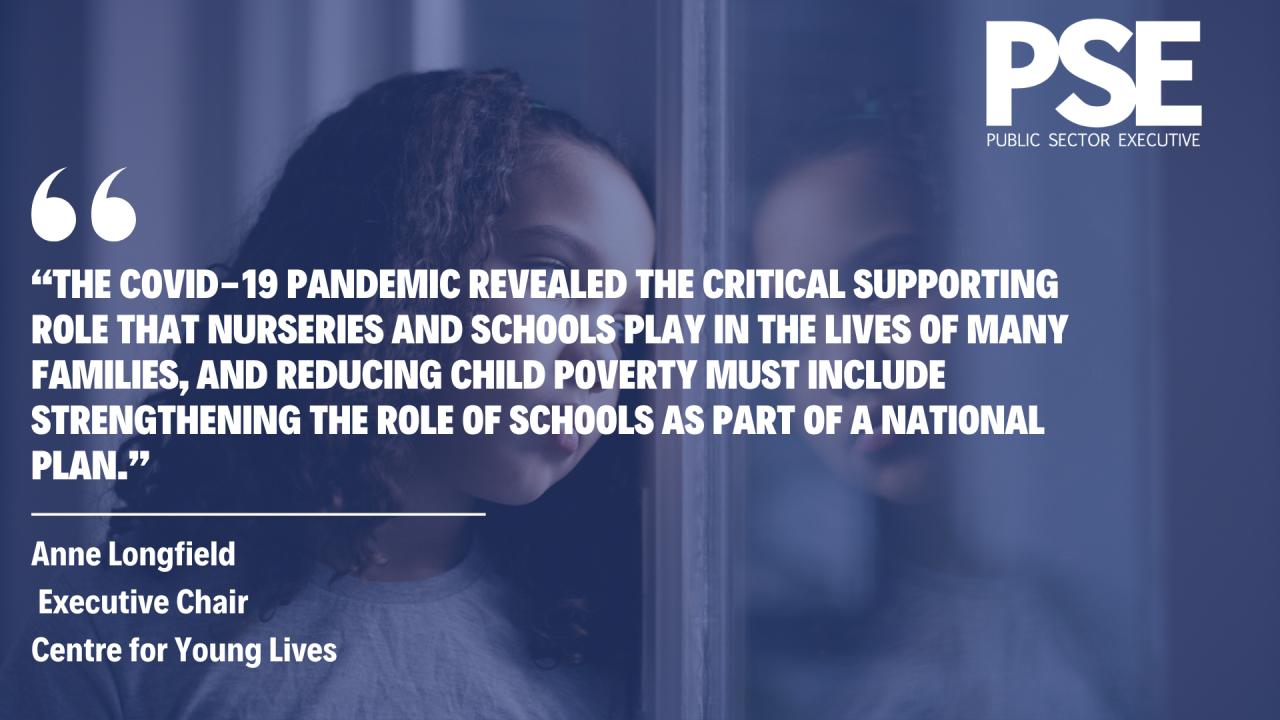A new report into child poverty has called on the government to bring education infrastructure into the fight, whilst recommending a number of plans of action.
The report, titled An evidenced-based plan for addressing poverty with and through schools, has been published by Child of the North and the Centre for Young Lives and suggested that schools and nurseries should take the lead on tackling child poverty thanks to their ‘anchoring’ role in deprived communities.
According to the statistics, more than four million children in the UK are living in poverty, with one million of those being in the North of England. The report has also discussed the negative impact that poverty has on the education, health, and future employment opportunities of many children. These range from children that are born into families with the lowest incomes being 13 times more likely to experience poor health and educational outcomes by the age of 17, to the fact that only four in every ten of the most disadvantaged pupils will achieve their expected attainment by the time they finish school.
Also highlighted in the report is the link between poverty and school attendance, with this showing that children who grow up in poverty are more likely to be persistently absent from school.

Executive Chair of the Centre for Young Lives, Anne Longfield, said:
“The Covid-19 pandemic revealed the critical supporting role that nurseries and schools play in the lives of many families, and reducing child poverty must include strengthening the role of schools as part of a national plan.
“It also highlights the deep inequalities in educational achievement and the barriers to children’s life chances that come with high levels of poverty. Schools are on the frontline of the battle against child poverty but are overwhelmed by what is being asked of them. We need to give our schools and school leaders the tools – and, crucially, the funding – they need to poverty-proof their schools.
“Intervening within the school gates to target the most vulnerable children to make sure they are provided with the support they need with pastoral support, family workers, educational psychologists, youth workers, breakfast and after school clubs, enrichment activities and holiday play schemes, can make such a difference to breaking down barriers and inequalities.”
A number of recommendations have been made on the back of the report, with these culminating in a proposed plan to remove the barriers to education that are brought along by poverty. This includes:
- Addressing child poverty as a public health problem and adopting a proportionate universalism approach. This would include funding universal free school meals to individual schools and nurseries where there are high levels of child poverty.
- Expanding the provision of free school meals to include children in all families that are receiving Universal Credit or legacy benefits. This will ensure the automatic registration of families for free school meals if they are eligible.
- Improving resources so that more pastoral support, family workers, educational psychologists, youth workers, breakfast clubs, after-school clubs, extended school openings, enrichment activities, and holiday play schemes can be provided.
- Reversing the current situation that sees children in disadvantaged areas being less likely to benefit from the education system due to children in more affluent schools being given larger funding.
- Making sure that Integrated Care Boards involve education leaders in their plans, as well as prioritise education in its role as a major lever for improving health.
The Local Government Association also issued a response to the report, with Chair of the Economy and Resources Board, Cllr Pete Marland, saying:
“We have long called for a cross-government approach to reducing child poverty, underpinned by a new anti-poverty strategy, and strengthened focus on improving outcomes for children.
“The most effective way of lifting children and families out of poverty is through an adequately resourced national safety net and sustainable long-term funding for vital local services, such as advice services, local welfare assistance, housing, and employment support.
“As this report recommends, the government should consider introducing automatic enrolment for free school meals and also consider expanding eligibility criteria to all children and young people of school age who are in food poverty, to tackle growing disparities.”
Image credit: iStock



















